- Skip to content
- Go to accessibility page

Undertaking a PhD in France
Are you considering doing your PhD in France? Below, discover everything you need to know. Learn more about the application criteria, project development process, and types of PhDs.
Advanced degree
In France, a PhD is the highest academic degree you can earn. Doctoral studies are a form of research-based training with the same value as professional experience. PhD students carry out research on a defined topic under the supervision of their thesis advisor(s).
PhD students are enrolled in doctoral programmes run by institutions of higher education (i.e., universities or grandes écoles ), but they are trained within research laboratories. Students carry out original scientific research either on their own or as part of collaborative projects; the results form the basis for their dissertations. Students must also go through a thesis defence in which they present their findings to a committee that judges the quality of their work. Those who succeed are awarded doctoral degrees.
Generally, earning a PhD requires 3 years of full-time research. One-year extensions may be granted under certain circumstances. In exceptional cases and for compelling reasons, a student may request a leave of absence of up to 1 year. Such requests are only granted once, upon approval by the establishment’s director. Any leave of absence is excluded when calculating thesis duration, given that the student suspends their training and research during that period.
To be eligible for doctoral studies, you must have a master’s degree. This requirement can be waived by an establishment’s director if approval is granted by the doctoral programme’s administrators. You need to show that you have an equivalent level of education or professional experience.
PhD programmes frequently have an international component. For example, doctoral students often take part in joint degree programmes or dual degree programmes, a situation that is facilitated under French law.

Status of doctoral students
In France, the status of doctoral students depends on their funding source. Anyone doing a PhD is officially recognised as a student because they must be enrolled in a doctoral programme at an institution of higher education. In addition, many are also salaried workers because they are contractual employees.
International doctoral students with foreign grants have the status of students in France.
There are different types of doctorates in France. Here are some common examples:
Traditional PhD
- 3 years of work in a single research laboratory
- Leads to a French degree
- Enrolment and thesis defence occur at a single institution
- Single thesis advisor (or co-advisors, if necessary)
Jointly supervised PhD
- Thesis jointly supervised by a set of co-advisors—one from the student’s main research laboratory (affiliated with the enrolment institution) and one from a separate institution, either in France or another country
- Enrolment and thesis defence occur at the institution affiliated with the main research laboratory
- Single degree granted by the above institution
- Thesis research might arise from a national and/or international collaboration
Dual degree PhD
- Thesis jointly supervised by a set of co-advisors, with research taking place in two laboratories
- Individual dual degree agreement ( convention individuelle de co-tutelle ) establishes a research framework
- Enrolment occurs at two institutions—one in France and one abroad
- Tuition is paid to a single institution
- Single thesis defence but two degrees (one from each institution)
Professional PhD
- Research carried out at a private company partnered with a publicly funded laboratory and its affiliated institution of higher education
- Thesis jointly supervised by a set of co-advisors—one from the company and one from the laboratory
- Work is split between the company and laboratory
- Student contractually employed by the company
- Degree is granted by the institution of enrolment
- Excellent opportunity to gain professional experience
Doctoral training
The first step in your doctoral studies is to enrol at an institution (university or grande école ) with an official PhD programme that is under the aegis of the French Ministry of Higher Education and Research. Such doctoral programmes are structured to provide a high level of personalised training and supervision during your thesis work:
- You are under the supervision of one or more thesis advisors
- You carry out your work within an affiliated research unit and take part in laboratory activities
- You can participate in courses and seminars designed to establish a solid scientific foundation and guide the development of your research
Your thesis committee will ensure your studies are advancing smoothly, notably by evaluating your training conditions and research progress. To enhance your employability, your doctoral programme and thesis advisor will
- Encourage you to attend national, European, and international conferences and publish in national, European, and international journals
- Design a training programme compatible with your PhD project
- Help you exploit your skills and training
In France, you can write and defend your thesis exclusively in English. However, your thesis summary must be translated into French.
Your PhD project
To begin your PhD, you must find a host research laboratory, a thesis topic, a thesis advisor, and funding. We recommend that you begin this process at least 1 year before your target start date. You can begin by looking at the list of thesis topics posted by doctoral programmes and institutions of higher education. You can also directly contact laboratories working in your area of interest. As a general rule, your future thesis advisor will help you with funding.
International students may be able to find other sources of funding, such as fellowships from embassies, the governments of their home countries, and/or partnership agreements between institutions.
Enrolling in a doctoral programme
Once you have resolved all of the above, you must submit your project to your doctoral programme for approval. Your thesis advisor and the laboratory director will evaluate the quality and feasibility of your proposal.
If their assessment is favourable, the director of the doctoral programme will allow you to enrol. You will be informed of the decision by the head of the doctoral programme (the university or grande école president). The French Ministry of Higher Education and Research establishes the amount of tuition paid by bachelor’s, master’s, and doctoral students. Tuition levels are the same everywhere in France.
In 2023, annual tuition for doctoral students was €380. There is also a campus activities fee (CVEC) of €92. In certain cases, both may be waived.

Useful link
- Getting a PhD in France—directory of doctoral schools
Related articles
- Doctoral studies at INRAE
- Joining INRAE
- Working conditions & benefits
- Publishing results & managing data
Last update: 20 March 2024

Home > Admissions > Admission to a PhD
Admission to a PhD
Candidates who already hold a Master's degree or equivalent and who wish to enter a PhD programme at thesis level, regardless of their previous studies (international or French), should apply directly online . The doctoral programme must be chosen carefully: only one application per year is possible, all doctoral programmes combined.
Degree requirements
- Criteria for the application evaluation
Application
Financing studies, co-supervised thesis, joint thesis, doctoral programmes in economics, history*, political science and sociology**.
Applications starting 11 October 2023
To be eligible for assessment, your application must be complete and submitted before:
- 10 January 2024 at 11:59pm (Paris time), for an admission result mid-March 2024
- 17 May 2024 at 11:59pm (Paris time), for an admission result mid-July 2024
Auditions for applicants may be organised on 18 June 2024 for the Doctoral programme in History (*) Auditions for applicants may be organised on 26 June 2024 for the Doctoral programme in Sociology (**).
Doctoral programme in Law
Only one admission session this year for the Doctoral programme in Law (*)
- 12 March 2024 at 11:59pm (Paris time) for an admission result from mid-April 2024
(*) This year, there will be only ONE admission session for the Law doctoral programme with results communicated from mid-April 2024. Contact: Professor Vincent Forray , Head of doctoral studies in Law
The PhD application is open to students with a Research Master's degree , a postgraduate degree (Diplôme d'Etudes Approfondies - DEA) or an equivalent degree (bac +5). There must be a match between the candidate's graduate studies and the discipline of the requested doctoral programme.
For the record, the IEP awards PhDs in Economics , History , Law , Political Science and Sociology . For candidates who do not have the required degrees to be directly admitted into the First thesis year, see admissions into Master’s programmes offered by the School of Research.
In Sociology only, the PhD application can only be reviewed if the thesis supervisor has provided you with a preliminary letter of consent and if a research unit Director has provided you with a preliminary letter of consent. In Economics, Law and Political science , no preliminary letter of consent is requested. In History , the name of the potential research supervisor must be indicated (in the “Personal statement” tab), no preliminary letter of consent is requested.
The candidate must identify a host research laboratory . See the list of Sciences Po's research units and affiliated researchers.
Sciences Po's Graduate School is careful to limit PhD admissions to students whose thesis proposal is likely to succeed. It is therefore important that the candidate have a developed vision of his/her thesis subject and the implications of this choice for his/her research and career plans. The thesis topic might change during the first months of the PhD programme, but it is important that the candidate formulate in the most precise and coherent way possible the key elements to evaluating his/her research project.
Criteria for the Application Evaluation
Several criteria are taken into account for the selection of candidates applying for a doctorate:
- The selection of the research problem must be supported by previous work.
- A presentation of the chosen methodology to address the given problem.
- An evaluation of the feasibility of the planned research from both a scientific and practical perspective. Some topics require access to areas or data that are not easily accessible.
- The candidate must also indicate his/her availability to produce a thesis. This is particularly important for employed candidates. (1)(See the section "Financing of studies" below).
- The financing of studies (See the section "Financing of studies" below).
- Finally, it is important that the candidate be able to explain his/her project in relation to his/her academic and/or professional background . The academic record should preferably be consistent and coherent. In all cases the requisite academic track record must be very good. Moreover, for employed candidates, the professional career must be explained and related to the thesis project: how might the candidate's professional experience tie into the thesis project? Is the thesis part of a professional development plan?
The application must be submitted exclusively online , according to the Admissions calendar.
Documents for your application may be uploaded in French or in English (CAUTION: only png, jpeg, jpg or pdf formats are accepted):
For all doctoral programs:
- Two academic recommendations (an optional professional recommendation may be added)
- Proof of identity
- Thesis project ( PDF or Word format, 5,000 words maximum, i.e. about ten pages, excluding bibliographic references)
- Thesis project synopsis (two pages, PDF or Word format)
- Copy of last completed academic degree (Master or equivalent)
- Master transcripts ( the documents must be attached in the original language, along with an official or informal translation in English or French if necessary. Please add a sworn statement of compliance if the translation is yours)
- If obtained, official proof of doctoral funding obtention (see the "Financing of studies" section below).
PLEASE NOTE : no supporting document will be accepted after the evaluation process has begun. Please make sure that your application is complete before submitting it. For candidates currently in the process of obtaining the requested diploma, please attach all the transcripts available at the time of your application. Incomplete applications will not be assessed.
Additional information for the following doctoral programmes
- If you have a potential supervisor in mind, please indicate his/her name after your Thesis project title in your online space
- Indicate at least one potential Thesis supervisor from Sciences Po’s Center for History in the “Personal statement” tab.
- The Thesis project mustn’t exceed 3,000 words excluding bibliography, that shouldn’t exceed 20-25 titles
- A grade of 16/20 or equivalent is required for the Master Thesis
Political science
- A signed letter from a thesis supervisor authorised to supervise research, indicating that he/she accepts to supervise your thesis ;
- A letter from the laboratory Director indicating that he/she accepts to host you in the laboratory (contact the laboratory Director) ;
- A grade of 16/20 (if graded) is required for the Master Thesis.
The result of the language test is optional.
- Economics: English C2, French
- History: French B2
- Law: English C2, French
- Political Science (Compared politics, International Relations, Political Theory) : French B2
- Sociology: French B2
CAUTION: "Required languages" is a mandatory field in our application file; i f you do not have a CECR test result or self-assessment to upload, please select "two years of study in the language" by default.
The €100 application fee is not refundable. We do not offer fee waivers, unless you have a refugee status or are a recipient of a CROUS scholarship. In that case, please contact us to inform us, and attach the official proof of your current situation to your file. Please note: Paying the application fee does not mean that your application form has been submitted. Make sure to submit your application form within the deadline by clicking on the “Submit“ button. If you are unable to pay by credit card, please contact the Admissions Department to obtain our bank details. Your payment will be validated on receipt of a copy of the proof of transfer.
Do not wait until the last day to submit your application. To be assessed, your application must be complete and submitted before the deadline of the programme you are applying to. Deadlines always refer to Paris time (23:59pm). Please note:
- As our platform does not automatically invalidate incomplete files, it is your responsibility to submit an application that includes all required documents (including references).
- Once you have submitted your application, you will not be able to bring any change, please be very careful.
Applicants may be contacted for an interview as part of the admission procedure.
In accordance with the decree of 25 May 2016 setting the national training framework and the procedures leading to the issuing of the national doctoral degree, the financial preconditions must be met to ensure the orderly conduct of the research work and preparation of the thesis. Doctoral funding is therefore necessary to engage in a doctoral thesis. The doctorate is full-time at Sciences Po (except in the particular case of full-time employees who work on a research subject directly related to their job and have obtained the employer's agreement to have the necessary time to carry out their research) and the funding must meet the following criteria :
- a duration of at least three years;
- a net monthly amount akin to that of the doctoral contrat in force ;
- the obligations attached to the financing must not represent more than one day per week (with the exception of CIFRE, where the obligations must be assessed on a case-by-case basis);
- the funding organisation must respect the academic freedom of the doctoral student regarding the content of his research and the composition of the defense jury;
- funding must not come from personal resources but from public or private organisations (foundations, associations, companies, public authorities, international organisations, local authorities or others to be validated beforehand by the doctoral school) offering doctoral funding.
For more information on funding opportunities, see the section on Funding .
For all students entering the PhD programme, the annual fee for 2022/2023 is 380 euros, irrespective of tax residency.
In addition to receiving guidance from their thesis supervisor, some PhD students receive assistance from another Professor or Researcher who may be based in a different institution.
The role of this co-supervisor must be formalised through a co-supervised thesis agreement established :
- between the PhD student's institution and the co-supervisor if the co-supervisor works at a different institution, or
- between the supervisor and co-supervisor if both work at IEP Paris. At Sciences Po the co-supervision is formalised through an exchange of letters.
The PhD student will obtain a PhD from his/her home institution. The co-supervisors commit to following the PhD student's work and to sit on the thesis examining committee. The thesis will explicitly state it was co-supervised and include the names and titles of the co-supervisors on the thesis cover page.
The Administrative Officer of the program must be informed of the co-supervised for validation.
The joint thesis involves guidance from two supervisors : a professor at IEP Paris and a professor from a foreign institution. It allows the issuance of two PhD degree, or of a joint degree where applicable. In France, joint theses are governed by the amended decree of 6 January 2005 on international joint theses (PDF, 45Ko) At Sciences Po, joint theses may only be permitted if:
- The student has already been admitted to Sciences Po
- The two thesis supervisors approached have conferred and provided their consent in writing.
Joint theses require the establishment of an agreement signed by all the partners (individuals and institutions). The three-year agreement must cover, among other things, the terms of registration, tuition, and the defence. It must be established in the first thesis year: see the section below on administrative procedures .
A joint thesis only makes sense and is only possible if the research project is shared by two institutions. In cases where this condition cannot be met, the student might consider a co-supervision , which also provides guidance from two supervisors, but does not allow the issuance of a dual degree. A joint thesis allows the student to:
- have access to greater resources (documentary resources, networks)
- pursue international career opportunities.
- Have access to, joint thesis scholarships covering the costs of joint theses (student's residence and defence fees)
Disadvantages
Joint theses may be difficult if the thesis supervisors have divergent views on the PhD student's work, or if the institutions' rules are too far apart.
In this case, the student might consider a co-supervision, which also provides guidance from two supervisors, but does not allow the issuance of a dual degree.
Administrative procedures
Even if the student is already enrolled in a foreign university, he/she must also be admitted to Sciences Po's at the thesis level.
Upon admission, the student must submit his/her joint project to the administration (administrative manager).
The agreement must include the following information :
- The university of primary enrolment
- Terms of tuition payment
- Terms of the defence
- Terms of sharing the defence fees
Once the agreement is signed, all parties will receive a copy.
If any breach of agreement should arise, management should be contacted.
Tuition fees will be paid in accordance with agreement. However, until the agreement is signed, the student is liable for the tuition at both institutions.
The organisation of the defence is framed by the agreement.
- For the presentation of the thesis, certain specific rules must be observed. See "Presentation Norms" on the page "Defence"
- For more on submitting a thesis in a foreign language, see the "Defence" page.
- Some foreign universities require a pre-defence. Inquire with the relevant academic authorities.
Submit an application
Admissions report
Application Guide
Tuition Fess & Scholarships
Careers Services Guide
Fees & Financial Aid
Limited financial resources are not a barrier to receiving a Sciences Po education.
Nearly one in three students receives a full-fee scholarship.
- Tuition fees
- Scholarships and financial aids
Applicants guide
Address / phone
27, rue Saint Guillaume - 75337 Paris Cedex 07
Phone: +33 (0)1 45 49 50 50 | +33 (0)1 42 22 31 26
SUBSCRIBE TO OUR NEWSLETTERS
A to Z Index
Legal terms
Quick links
Student account
Faculty account
Manage my password
Sciences Po App
© 2024 SCIENCES PO

- DOCTORAL SCHOOLS DIRECTORY DOCTORAL SCHOOLS
- SUBJECTS (PHD, MASTER'S & POSTDOC TRAINING) SUBJECTS
- CALLS FOR PROJECTS CALLS
- Skip to main navigation
- Skip to main content
- Skip to search
- Arts and Humanities
- Health sciences
- Science and Engineering
- Future international student
- International student
- Doctoral Candidate
International doctoral programs
International collaborations are an integral part of research. Some programs in particular enable the development an international experience in the context of doctoral education.
Published on 4/12/2019 - Updated on 6/03/2024
China Scholarship Council – Sorbonne University
The China Scholarship Council (CSC) and Sorbonne University have established a collaborative program offering excellent doctoral education to Chinese candidates in all disciplines represented at Sorbonne University. Doctoral candidates are hosted in a laboratory under the supervision of Sorbonne University and receive a scholarship funded by the CSC . This scholarship is for a maximum of 4 years. Its amount is currently 1350 €/month (amount periodically re-evaluated by the CSC). In addition, doctoral candidates will have to pay administrative fees. Candidates having obtained the CSC scholarship are required to commit to returning to China after the defense of the thesis or after a postdoctoral stay abroad (after agreement of the CSC).
Recruitment campaign
It takes place in several stages:
- A call for doctoral research projects is launched to researchers and academic researchers at Sorbonne University. The doctoral research projects are then validated by the doctoral schools and published.
- Chinese candidates send their applications to the project leaders , who forward the files of the candidates they have pre-selected to the doctoral schools. The candidates' files are examined by each doctoral school, which may issue a pre-admission letter subject to funding.
- The list of all candidates pre-selected by the Sorbonne University doctoral schools is sent to the CSC.
- Candidates must then apply in China on the CSC website . They are evaluated by the Chinese party, which notifies and awards the thesis scholarship if necessary.
Eligibility conditions of candidates
The CSC 2021 is only open to candidates of Chinese nationality who do not have any job outside the Chinese territory at the time of their application . They must demonstrate a very good level of English and, for some fields of humanities and social sciences, a very good level of French (B2 minimum, C1 recommended).
Student in China
- Be a student in the final year of a master's degree or have recently graduated or,
- Be in the first year of the PhD program, a letter of recommendation from the home university will be required.
Chinese student abroad
- Be a student in the final year of a master's degree or have graduated less than a year before applying for the scholarship.
Calendar 2021-2022
- October 1st: Postinf of validated projects on the Sorbonne University website , opening of students applications, Chinese candidates contact the project leaders and send them an application file . Applicants submit their application file under this link .
- January 31 : Closing of applications. The project leaders sent the selected application after hearing the candidates at their doctoral school.
- Until february 21 : after examination, the Doctoral schools send the signed and stamped pre-admission letters of the selected candidates to the doctoral college
- February 28 : The doctoral collège send the pre-admissions letters to the candidates
- Until March 31 : The candidates selected by Sorbonne Universite candidate on CSC website
- May 31 : Diffusion of results by the CSC to Sorbonne Université. Results are send to candidates as well as project leaders.
Doctoral project proposed for 2022
See doctoral project proposed for 2022
Admission file
Link to submit application
Request for specific assistance for doctoral fellows (sciences) - ASDB
For all doctoral candidates who will be affiliated to the Faculty of Sciences of the Sorbonne University, the ASDB should be set up in order to complete the 1350 euros of scholarships More information Contact for ASDB related issues
For any questions (except for the ASDB), please contact Camille Vignes [email protected]
Modeling of Complex Systems (MSC) Program
European founding myths in arts and literature.
Sorbonne University / University of Bonn / University of Florence
The Universities of Bonn, Florence and Sorbonne have agreed on a jointly structured doctoral training course with the title "Founding Myths of Europe in Literature, Arts and Music". The disciplines concerned arethe various philologies and literatures, the history of art and music, history, political science, philosophy, sociology, without a priori restrictions. Doctoral candidates prepare a thesis on the founding myths of Europe.
- More information on the website of the University of Bonn
Italian Studies
Since 2006, the Universities of Florence, Bonn and Sorbonne have agreed on a doctoral Program with a common structure and the mention "International Doctorate in Italian Studies". The whole of Italian Studies (Literature, Language, Civilisation, Performing Arts, Cinema) is covered in this training.
Coordinator: Professor Andrea FABIANO (ED 020: Civilisations, Cultures, Literature and Societies)
- For more information, visit the Italian Literature and Culture Team website.
Humanism and Rebirth
Sorbonne University / University of Florence
Sorbonne University have signed a collaboration with the University of Florence (Università degli Studi di Firenze) that enables doctoral candidates working on the world of European Humanism, in all disciplines to enrolled in this framework. The doctoral candidates will obtain the double title of Doctor of the University of Florence and Doctor of Sorbonne University, when they have defended their doctorate, directed in partnership by professors from both universities.
The language of the doctorate must be either French or Italian; the subject must be on the texts (literary forms, philosophy, art, aesthetics...) of Humanism and the Renaissance (14th-16th centuries), transmitting the ancient tradition, and/or their posterity.
Coordinator: Professor Hélène CASANOVA-ROBIN Professor of Latin Literature (specialist in Humanism) Director of the E.A. 4081 Rome and its renaissances ED 022 Ancient and Medieval Worlds
- For more information
Joint Ca'Foscari-Sorbonne University Program
Envoyer cette page à un ami.

- Learn French
- Dual and Joint Degrees
- Exploring Master's Programs in France
- Tourism, Hospitality & Gastronomy
- Label Bienvenue en France
- Online and Distance Learning
- Study Abroad
- Summer and Short Programs
- Taught in English
- Medical Studies in France
- Virtual Events Calendar

- Pay EEF Application Fee
- Application Overview
PhD Students
- Baccalauréat Holders and/or European Citizens
- Common Application for French Institutions
- Covid-19 FAQs
- Types of Students

- Being a Student with a Disability in France
- Students with Families
- French Culture Primer

- Graduate Scholars in France (Master's level funding)
- Resources for Alliances françaises
- Resources for Study Abroad Advisors
- Standards of Good Practice for Education Abroad
- Visibility Tool Kit

- FranceAlumni USA
- Life After Studying in France
- Student and Alumni Stories
- Campus France USA Team
- About the Campus France Agency
- Information Materials

Before you can enroll in a PhD in France, you must find a thesis supervisor and subject. What are the steps?
If you wish to do a Doctorate in natural and technological sciences:
1) Apply for thesis subjects that have been published by French researchers.
You will find these subjects on the Campus France platform .
There are two types of subjects: subjects already funded by the host establishment (choose "Type: Contract"), and subjects for which you must have your own funding (choose "Type: Grant").
2) Contact the researcher or Doctoral School that published the subject.
If you wish to do a Doctorate in the social sciences and humanities:
1) Check the Campus France subject platform .
If you can't find anything suitable, you will have to prepare a research project that you can then send to a researcher.
How to find a researcher to be a thesis supervisor?
First of all, remember that you must not propose a research project to every researcher in the field that interests you. For example, if your research project is in economics, don't send your proposal to every economist! They already receive an enormous number of requests like that and can't go through them all.
Your proposal should target specific people within your domain of study, that means the theme of your research project must correspond to the specialty of the researcher.
After you've sent the proposal to the right person, you'll have to engage with the researcher in order to refine your thesis topic. To maximize your chances, you need to be flexible and ready to move away from your initial proposal. If you are able to obtain funding, say so at the start of your message.
Read Campus France's Guide: La Récherche en France for more detailed information about applying to doctoral programs in France.
Congratulations, you've found a thesis supervisor who accepts you.
Now the Doctoral School has to approve it so you can enrol in a Doctorate. If funding is required by the Doctoral School, it must be approved before you can enrol.
The annual registration fee for a Doctoral program is €380. Even if you have a doctoral fellowship, you will have to pay the registration fee. Doctoral students are not subject to the fee differentiation for international students, as are students in other levels. You can learn more about tuition fees here .
Remember you still need to go through the Campus France USA application . Once you'll receive the confirmation e-mail from Campus France USA, you can then proceed to the next step for your student visa application ( France-Visas ).
Enjoy your PhD!
On the same topic.
- FAQ - PhD in France https://www.campusfrance.org/en/FAQ-Doctorate-France-questions

- An unforgettable adventure
- Educational excellence in France
- Study at the heart of Europe
- Enjoy numerous benefits
- Industrial dynamism and French innovation
- The art of living à la française

- French system
- Higher education institutions
- French degrees, LMD system and equivalences
- Cost of studies
- Quality of degrees and institutions
- Online or distance programme
- Scholarships programmes
- Scholarships for French students or students living in France
- Welcoming of students and researchers in exile

- Student and Campus Life Contribution (CVEC)
- Reception services in your city
- Prepare your budget
- Bank account
- Working while studying in France
- Learning French
- Finding a student sponsor
- Organising your stay as a scholarship holder
- Being a student with a disability in France

- French regions
- French language
- Getting around
- Join the France Alumni network
- Finding work in France
- How to start a company in France

- Le séjour de recherche
- The role of Campus France
- The tools of Campus France for international researchers
- Research Labs
- Mapping French research
- Outstanding French researchers
- Overview of French research by field
- Excellence of French research in videos
- Accueil des étudiants et des chercheurs en exil

- What is involved in a Doctorate in France?
- Doctoral Schools directory
- PhD subjects
- Pre-Doctorate programmes
- How to enrol in a Doctorate
- How to finance your Doctorat (PhD)
- Use the "Research" portal
- FAQ – Doing my Doctorate in France

- Study in a Post-Doctorate in France
- Join a summer school
- Come to France with the status of invited professor

- Reception programmes and doctoral student associations
- Apply for your visa / Validate your residence permit
- Prepare for your arrival in France
- Finding accommodation in France
- Social Security for doctoral students and researchers
- Living in France

- Programs with Sub-Saharan Africa countries
- Programs with Asian countries
- Programs with European countries
- Programs with Oceania countries
- Programs with American countries

- Campus France missions
- Campus France organisation
- Campus France activities by geographic area
- Events organised by Campus France
- Public procurement
- Mobile applications

- Operation and governance
- Joining the Forum
- Member benefits
- Committees and workshops
- Updating your information online

- France Alumni network
- European projects
- Choose France, La stratégie d'attractivité des étudiants internationaux
- The French+Sciences program

- Campus France expertise
- Make Our Planet Great again
- Le programme « Partenariats avec l’enseignement supérieur africain »
- Le programme de bourses IsDB-France
- Scholarships program for Syrian students in exile in France
- Pakistan: Higher Education Commission scholarships programmes
- Les bourses pour les étudiants français ou résidant en France

- L'accueil des étudiants internationaux
- Label Bienvenue en France
- Nos événements
- Le réseau des responsables de l'accueil
- L'accueil des étudiants réfugiés et en exil
- L'accueil des étudiants en situation de handicap
- Les mémos de Campus France
- Afrique du Sud
- Burkina Faso
- Congo - Brazzaville
- Côte d'Ivoire
- République Démocratique du Congo
- Corée du Sud
- Ouzbékistan
- Philippines
- Territoire de Taïwan
- Biélorussie
- République tchèque
- Royaume-Uni
- Arabie Saoudite
- Émirats arabes unis
- République dominicaine
- Resources center
How to finance a Doctorate in France
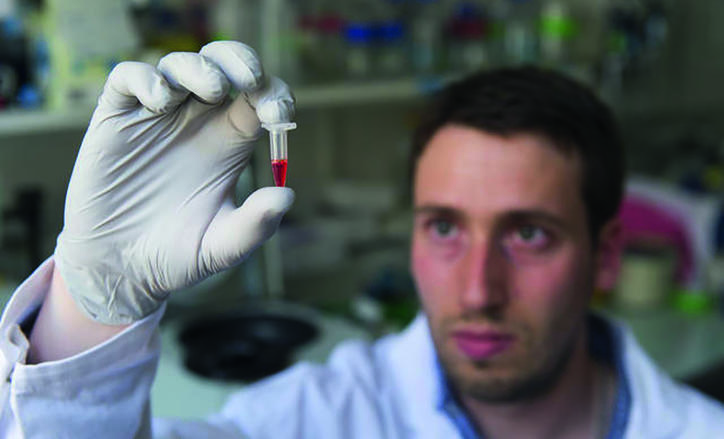
Funding must often be found before enrolling in a Doctorate. Depending on your situation, your host establishment, your country of origin, a company or the European Union may finance your research project.
The tools indispensable for finding funding
Before looking for doctoral funding, check to see if the doctoral school that you're interested in requires minimum funding before you can enrol. This is especially the case when you are in the natural and technological sciences. The amount is indicated on the school's page in the directory of doctoral schools .
Check the list of possible funding for your Doctorate in the Campus Bourses catalogue. Depending on the case, your Doctorate may be financed by your host establishment, a company or your country or university of origin.
Finally, each year the Association nationale des docteurs (ANDès - the National Association of Doctors) publishes a guide to funding for Doctorates in which you will find additional information concerning funding for your Doctorate.
Doctorates financed by your host establishment
On their Internet sites, doctoral schools, laboratories and research institutes regularly publish proposals for financed thesis subjects. This doctoral funding constitutes the first way for you to find funding for your Doctorate. There are three types:
- Funding from a doctoral fellowship : your doctoral school provides you with 1,400 euros net funding for your Doctorate per month for three years. This is done either through its research budget or as a complement to your own funding. The doctoral fellowship is a work contract specifically for doctoral students, with no age or nationality conditions. It can be renewed twice for one year each time, for a total of 5 years.
- Funding from a contract with a research institute : your research institute (CNES, CNRS, CEA, etc.) provides you with 1,500 euros net funding for your Doctorate per month.
- Funding from a contract connected to a project financed by the Agence Nationale de Recherche (ANR National Research Agency), at 1400-1500 euros net per month.
Doctorates financed by your country of origin
Some countries have implemented Doctorate funding programmes , such as the Conacyt grants in Mexico, the ProFas B+ programme in Algeria and the Higher Education Commission (HEC) programme in Pakistan. To find out which one is suitable for you, check the list of Doctorate funding programmes or the Campus France office in your country of origin , and also contact your government.
The amount of the grants varies according to the country. It is usually from 900 to 1,500 euros per month. In all cases, check with your doctoral school to make sure that the proposed funding is sufficient. Otherwise, the host laboratory will have to find additional funding for your position.
Further, some French establishments provide 50% of the funding required for a Doctorate, and look for partners willing to pay the remaining 50%.
financement pour un doctorat, et cherchent des partenaires disposés à payer les 50% restants.

Doctorates financed by a company
In partnership with the Association Nationale de la Recherche et de la Technologie (ANRT - National Research and Technology Association), the CIFRE ( Conventions Industrielles de Formation par la Recherche - Industrial Agreements for Training through Research) enables young researchers to be hired by a company or public authority to conduct their research, in conjunction with a university team.
The company or authority then finances your Doctorate via a work contract under private sector law. It provides you with a minimum salary of approximately 1,800 euros net per month for three years. It is a good opportunity to acquire experience in research in a company.

Doctorates financed by the European Union
Established as part of the Marie Skłodowska-Curie actions , the European Joint Doctorate provides funding for 36 months. It is aimed at foreign students who are enrolled in a Doctorate in a European institute of higher education that belongs to a consortium of at least three establishments in three different countries. The funding request must be sent to the coordinating establishment.
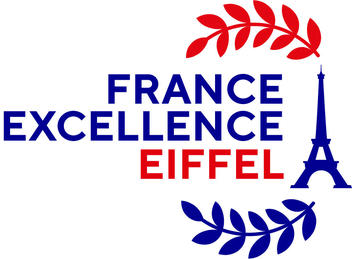
Related contents

Recommended items

Follow the main steps to come study in France
Study Destination
PhD in France: ...
PhD in France: Best Universities, Requirements, Fees, Scholarships, Scope of PhD in France for Indian Students

France produces over 15,000 doctorates graduate each year. Thus it isn’t wrong to say that studying PhD programs in France is a wise decision. France’s education system is globally recognized but apart from this, the affordable fees is a turning point that attracts millions of international students to continue their higher education here.
PhD is one study level that is garnering popularity. The country also offers multiple scholarship opportunities to conveniently assist PhD research and studies. Thus if you’re keen to study PhD in France, this blog covers all the essential information to help you get started.
Why Study PhD in France?
Before you can apply for PhD in France, let’s understand why this country is the preferred choice by multiple international students:
- Affordable Tuition Fees
To study PhD in France for international students the fee ranges between 243 EUR- 30,000 EUR/year. However, most French universities waive off the tuition fees and instead ask students to pay the registration fees.
- Work Contracts
Most French host universities fund doctoral programs in the form of fellowships. This means that PhD students here receive work contracts of up to 3 years or in another equivalent format.
- PhD in English
The great news for international students here is you can study PhD in France in English as well. The language of instruction is also available in French and covers other languages as well based on the universities offerings.
- Top PhD Universities
Lastly, pursuing PhD in France for Indian students takes place with QS-ranked universities. To name a few are HEC Paris, University PSL, Institut Polytechnique de Paris, Toulouse School of Management, etc.
Suggested: Work Opportunities in France for International Students
An Overview Of Ph.D In France For Indian Students
So what to expect from a PhD in France? Here is an overview of PhD studies in the best education system globally:
Top 5 PhD Universities In France To Consider In 2022
There are multiple popular PhD universities in France. All of them are QS-ranked and offer multiple PhD programs and specializations. Here is an overview of the top 5:
- University PSL
- Institut Polytechnique de Paris
- Toulouse School of Management
- Rennes School of Business
Eligibility Criteria For PhD In France
French universities have certain eligibility criteria that need to be met. While these criterias differ from one university to another, there is a standard criteria that is followed by all:
- A Bachelor's or Master's degree
- English language proficiency
- Motivation to join the university
- Good Academic record
- Professional Experience
1. A Bachelor's or Master degree
To join any PhD program in France, international students need to clear either a Bachelor's degree or Masters in France in the respective field of the course chosen or equivalent.
2. English language proficiency
International students need to pass an English language proficiency test as part of their application process. The widely accepted exams are TOEFL (100) and IELTS (7.5).
3. Motivation to join the university
Most French universities accept students who have the right zeal, energy, and purpose to join the university.
4. Good Academic record
International students with good academic records are highly considered and have better leverage over others.
5. Professional Experience
While professional experience isn't mandatory in most French universities, having one can enhance your application better.
Admission Requirements To Pursue PhD Programs In France
Here is an overview of the admission process for PhD in France requirements:
- Find a PhD in France you wish to pursue
- Choose your thesis and thesis supervisor. Get it approved by the university
- Apply to the university and ensure you fit all entry requirements
- Attend scheduled interview either online or face to face
- Once confirmed, apply for a student visa and funding
Suggested: Steps in applying for visa in France
Documents Required for PhD In France
To complete your PhD in France requirements, international students need to submit all supporting documents. Ensure the below is checked:
- Degree certificates
- CV (Resume)
- All educational transcripts
- Personal statement
- GMAT / GRE score
- Thesis chosen + Thesis supervisor selected
- English language proficiency test results
- Two online references
- Passport photo and ID proof
- Research material
- Application Fee payment ( 50 EUR- 60 EUR)
Cost of Studying PhD In France In English
The cost of studying PhD in France is determined on two factors, tuition fees and cost of living.
Let’s learn about them one by one:
Tuition Fees
The tuition fee to pursue PhD programs in France is 380 EUR- 30,000 EUR/year. However, most French universities waive off the tuition fees for all PhD students and instead ask them to pay an annual registration fee that ranges between 243 EUR- 980 EUR/year.
Cost of Living
The cost of living in France ranges between 600- 800 EUR/month. If you’re studying in the top cities in France, living costs will range between 650- 1800 EUR/month. Your expenses will be accommodation, transportation, health insurance, personal expenses, etc.
Scholarship Opportunities For PhD In France For International Students
While France offers affordable fees to pursue PhD in France for Indian students, the country also provides fully funded PhD in France scholarship opportunities too. Here is an overview of the popular ones:
Suggested: Best scholarships in France for international students!
Career Opportunities To Study PhD In France
After you graduate from PhD universities in France, there is a range of job profiles available for you to choose from. On average PhD graduates can earn up to 46,000 EUR/year.
The job profiles differ based on your subject choice. Here is an overview of PhD job profiles available and the average expected salary:
France has a new identity in 2022, the new choice for higher education abroad. Pursuing PhD in France opens doors to the best experts in the industry, graduate from QS-ranked universities, and indulge in meaningful learning that will enhance your career path. While this information is sufficient, make a confident choice by speaking to our Yocket counsellors today.
Frequently Asked Questions About PhD In France
How many years is PhD in France?
Pursuing PhD in France takes about three to six years to complete based on the subjects chosen.
Is it worth doing a PhD in France?
Yes, pursuing PhD programs in France is worth the time and effort since the country is home to the best universities, education system, and expert minds in multiple industries.
Can I work during PhD in France?
Yes, international students can undertake part-time job opportunities while studying PhD in France. The part-time working hours are 20hrs/week.
Do PhD students pay taxes in France?
No, PhD students are not required to pay any taxes, however, they do need to pay student social insurance.
What is a PhD called in France?
PhD in France is also referred to as Doctorat.

Kashyap Matani
Articles you might like
Study with us
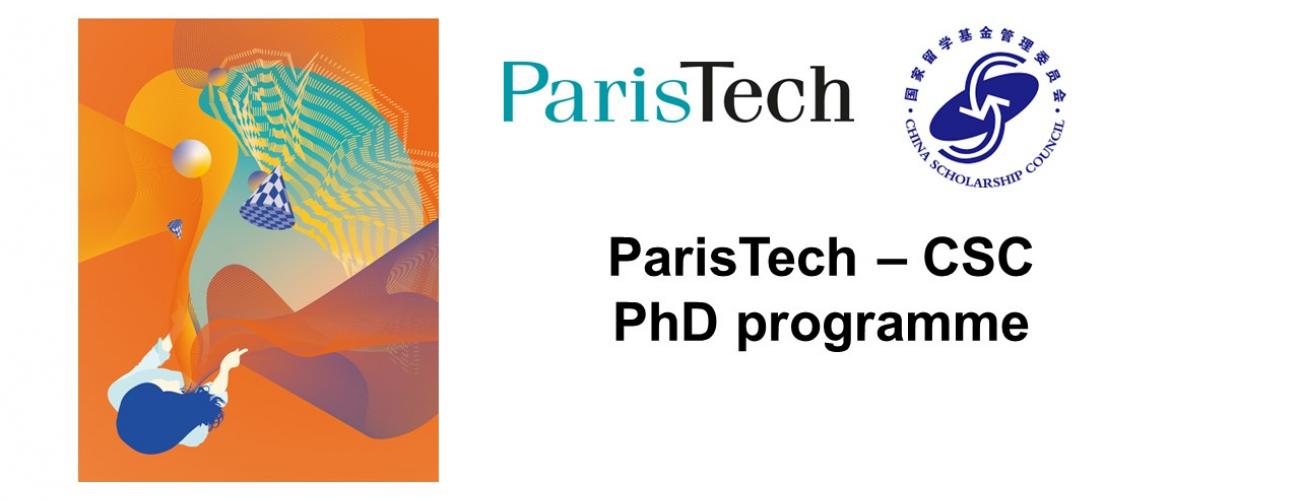
ParisTech-CSC PhD Program
ParisTech and the China Scholarship Council (CSC) signed in 2011 an agreement to create a PhD program in France; it was renewed in 2017, and then in 2022. Since the implementation of the program in 2013, 250 scholarships were awarded for students admitted in the program to complete their PhD within one of the ParisTech Schools laboratories.
This program is open to highly qualified Chinese students interested in carrying on doctoral training in a ParisTech school with the CSC financial support. The awarded grants will cover a period of 36 to 48 months in France for full PhDs, with an amount of 1350€ per month and a roundtrip airfare by the most economical route.
As part of this program, students have also the possibility to complete a co-supervised PhD in collaboration between their home research group in China and their host laboratory in France. The awarded grant will cover a period of from 6 to 24 months in France for co-supervised PhDs, with an amount of 1350€ per month and a roundtrip airfare by the most economical route. One of the objectives of this program is to further develop research collaborations between ParisTech schools and partner universities and laboratories in China.
Up to 30 scholarships can be awarded within this program each year. Exceptionally, 33 were granted in 2020.
All ParisTech Grandes Écoles participate to this program: AgroParisTech, Arts et Métiers Sciences et Technologies, Chimie ParisTech - PSL, Ecole des Ponts ParisTech, ESPCI Paris - PSL, Institut d’Optique Graduate School, Mines Paris - PSL. With 85 laboratories and more than 3,000 research staff, the ParisTech Grandes Écoles have enormous research potential.
Their research activity covers 12 key fields:
- Chemistry, physical chemistry and chemical engineering
- Computer and communication science and technology
- Design and industrialisation
- Economics, management and social sciences
- Energy and processes
- Environmental science and technology, sustainable development, geosciences
- Life and health science and technology
- Materials science, mechanics, fluids
- Mathematics and their applications
- Physics and optics
- Planning and transport
- Science and bioengineering for agriculture, food, and the environment
Learn more about eligibility, the application process, the PhD proposals and the calendar.
More information about research in the schools here
Download the 2023 presentation
Watch the webinar 2023 on YouTube or BiliBili
Discover the testimonials of CSC scholars on YouTube ( playlist Research in ParisTech schools ) and BiliBili .
Testimonials
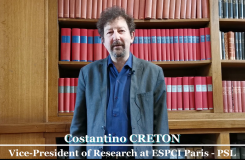
Costantino Creton
Director of Research, presenting research at ESPCI Paris - PSL (2020)
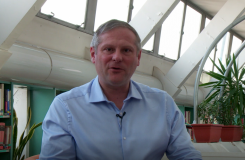
Alexandre Péry
Director of Research, presenting research at AgroParisTech (2021)
Testimonials of the PhD candidates

Ruan WEN, Institut d’Optique Graduate School (2023)
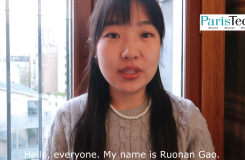
GAO Ruonan, Chimie ParisTech - PSL (2023)
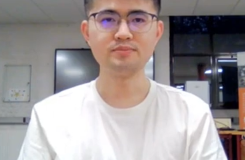
CHEN Wei, Arts et Métiers, campus de Lille (2023)
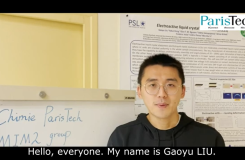
LIU Gaoyu, Chimie ParisTech - PSL (2023)
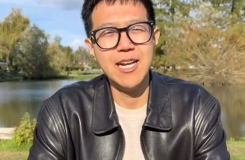
NIE Jiazhuo, ESPCI Paris - PSL (2023)
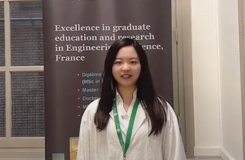
Zhihang ZHANG, Chimie ParisTech - PSL (2022)

Zhidian YANG, Arts et Métiers, campus de Lille (2022)
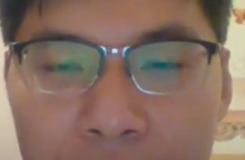
Chenghao XIN, ESPCI Paris - PSL (2022)

Tingcheng LI, Arts et Métiers (2022)

IMAGES
VIDEO
COMMENTS
PhD Study in France - 2024. Thinking of doing a PhD in France? The country has produced the likes of Claude Monet, René Descartes and Gustave Eiffel (to name a few) and is steeped in art, history and culture. No wonder more than 250,000 international students choose to complete their postgraduate study in France.
Now the doctoral school has to approve it so you can enrol in a Doctorate. If funding is required by the doctoral school, it must be approved before you can enrol. The annual registration fee for a Doctorate is €380 (2022/23 academic year). Even if you have a doctoral fellowship, you will have to pay the registration fee.
In France, it takes three to six years to complete a Doctorate, depending on the field, although there is no legal time limit. In the natural and technological sciences (mathematics, physics, chemistry, biology, engineering, etc.), it usually takes three years and can be extended for a fourth year. In the social sciences and humanities (law ...
In France, a PhD is the highest academic degree you can earn. Doctoral studies are a form of research-based training with the same value as professional experience. PhD students carry out research on a defined topic under the supervision of their thesis advisor (s). PhD students are enrolled in doctoral programmes run by institutions of higher ...
Category (PhD / Master's / Postdoc) -- Category -- Master Internship Doctorate Post-Doc CDI Other -- Doctorate type -- Full Doctorate Joint Supervision Doctorate Sandwich Doctorate Doctoral Programme
Nantes University. 501-600. 771-780. 701-800. Sciences Po. 501-600. =319. -. Information in this table is based on the latest Times Higher Education World University Rankings, QS World University Rankings and Academic Ranking of World Universities.
FAQ - Doing my Doctorate in France; After your Doctorate. Post-Doctorate Discover; Visiting professors or researchers Discover; ... PhD studies in France PhD studies in France. Flag this item. Updated. November 2023. Degrees. Degrees. French. Fichier PDF, 120.7 KB. English. Fichier PDF, 152.17 KB.
The PhD application is open to students with a Research Master's degree, a postgraduate degree (Diplôme d'Etudes Approfondies - DEA) or an equivalent degree (bac +5). There must be a match between the candidate's graduate studies and the discipline of the requested doctoral programme. ... In France, joint theses are governed by the amended ...
The Doctorate is the name of the degree that you obtain. It is the highest degree awarded by the universities and internationally recognised. In French, the period spent preparing the Doctorate is often called the "thèse"; people talk about enrolling for a "thèse", which means enrolling for a Doctorate. The thesis refers to the document that ...
A PhD programme in France is usually advertised as part of a doctoral school. It lasts for 3-4 years ending with a thesis submission and a public viva examination. Each academic year begins in September or October, and ends in May or June. The year is divided into two semesters with the first ending with a two-week break at Christmas and the ...
Doctoral Schools directory. Grand-Est Nouvelle-Aquitaine Auvergne-Rhône-Alpes Normandie Bourgogne- Franche-Comté Bretagne Centre Val-de-Loire Corse Île-de- France Occitanie Hauts-de- France Pays-de la-Loire Provence-Alpes Côte-d'Azur Réunion Guadeloupe Guyane Martinique Polynésie- Française Nouvelle- Calédonie 22 20 368 613 5 199 269 ...
Visiting Paris and France, practising a sport - p.46 and 47 Adjusting and enjoying your time in France - p.44 and 45 Travelling in France - p.42 and 43 Renewing your residence permit - p.19 and 23 Declaring and paying taxes - p. 36 and 37 Finalising your PhD registration - p.13 Whom to contact - p.9 Help with the moving process - p.8
International doctoral programs. International collaborations are an integral part of research. Some programs in particular enable the development an international experience in the context of doctoral education. Published on 4/12/2019 - Updated on 6/03/2024.
The annual registration fee for a Doctoral program is €380. Even if you have a doctoral fellowship, you will have to pay the registration fee. Doctoral students are not subject to the fee differentiation for international students, as are students in other levels. You can learn more about tuition fees here .
It is usually from 900 to 1,500 euros per month. In all cases, check with your doctoral school to make sure that the proposed funding is sufficient. Otherwise, the host laboratory will have to find additional funding for your position. Further, some French establishments provide 50% of the funding required for a Doctorate, and look for partners ...
The Sociology (Dual Degree with Northwestern University) PhD program is offered jointly by Northwestern University and the Institut d'Etudes Politiques (Sciences Po), one of Europe's premier institutions for the study of public affairs. Doctorate /Full-time /On Campus. Sciences PoParis, France. Ranked top 5%.
Cost of Studying PhD In France In English. The cost of studying PhD in France is determined on two factors, tuition fees and cost of living. Let's learn about them one by one: Tuition Fees. The tuition fee to pursue PhD programs in France is 380 EUR- 30,000 EUR/year. However, most French universities waive off the tuition fees for all PhD ...
ParisTech and the China Scholarship Council (CSC) signed in 2011 an agreement to create a PhD program in France; it was renewed in 2017, and then in 2022. Since the implementation of the program in 2013, 184 students have been admitted in the program to complete their PhD within one of the ParisTech Schools laboratories.
I'm doing my PhD in Toulouse, France. In my field, astrophysics, it is very competitive and only top ranks in Master will get one through open position (however, jury loves engineers from Grandes Écoles). Some research teams already have fundings for PhD position and can accept average grades but imo it's pretty rare. You have way more chance ...
PhDs in France earn around 1800 euro net. It's not too bad, and you'll be able to live a pretty decent life. It's a bit above the minimum wage. You pay healthcare through your taxes, which means you'll get a "carte vitale" that you will use to go to the pharmacy, doctor, etc. It covers basic health needs.